Photos taken by Bre Roeder & story written by Clara Campbell
From The Hive To Your Home
Serena Alunni
It wasn’t until she was completely encompassed with bees after being forced to save a hive that she realized it would be her passion. From a young age, Serena Alunni learned the art of beekeeping from her father. Though initially scared of the insects, she has since grown fond of them and developed a deep passion for her work. As the owner of Apicoltura il Podere, which translates to “The Beekeeping Farm,” tends to 500 hives in the picturesque hills of Isola del Piano, Italy. While maintaining tradition, she has also had to adapt to unprecedented times.
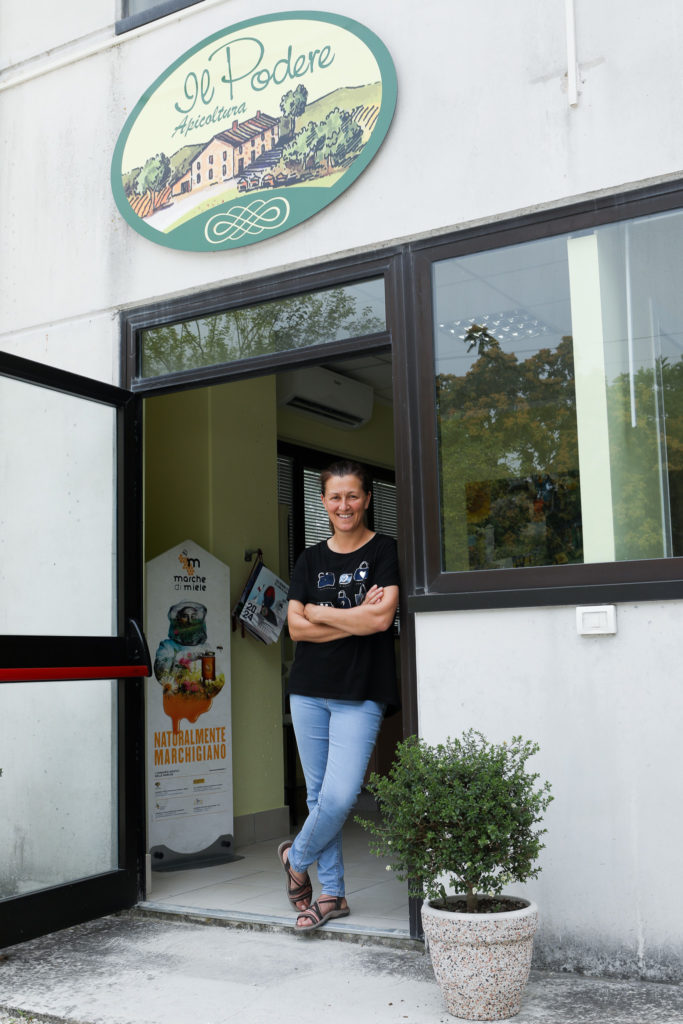
The hives are situated at the top of a beautiful grassy hill, with an incredible view of the surrounding area. The bees whir around their vibrant hives in the background as Serena shares her story.
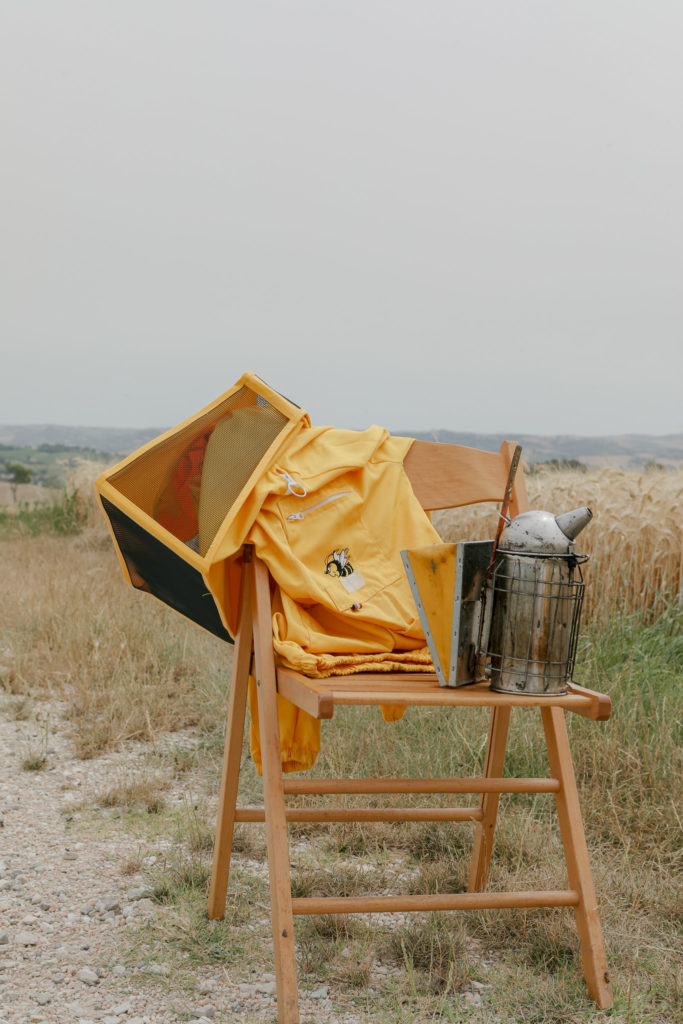
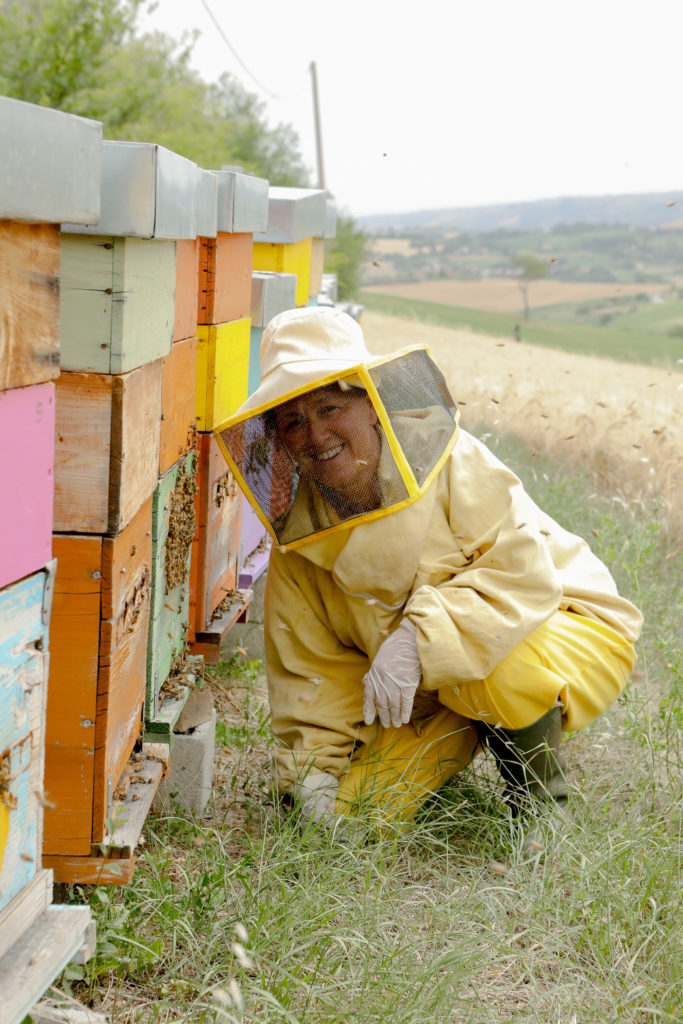
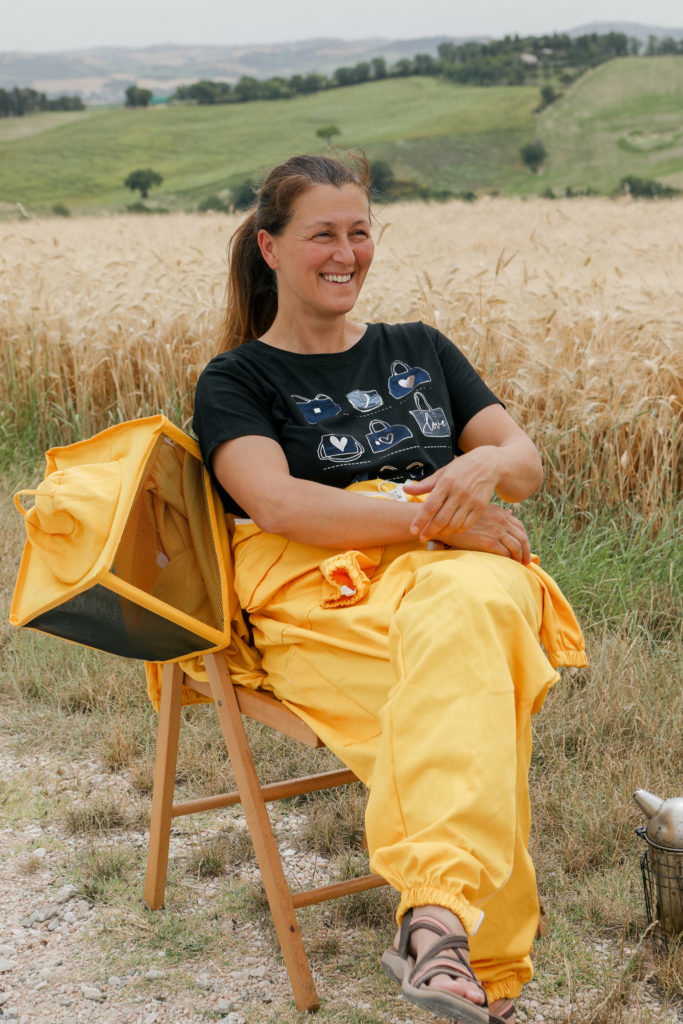
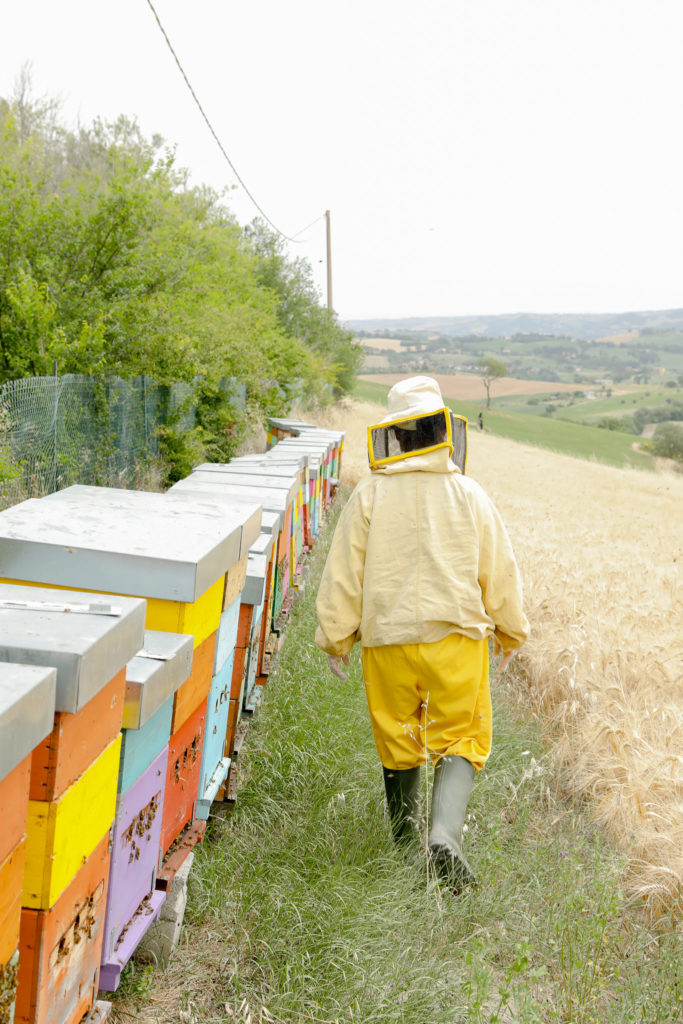
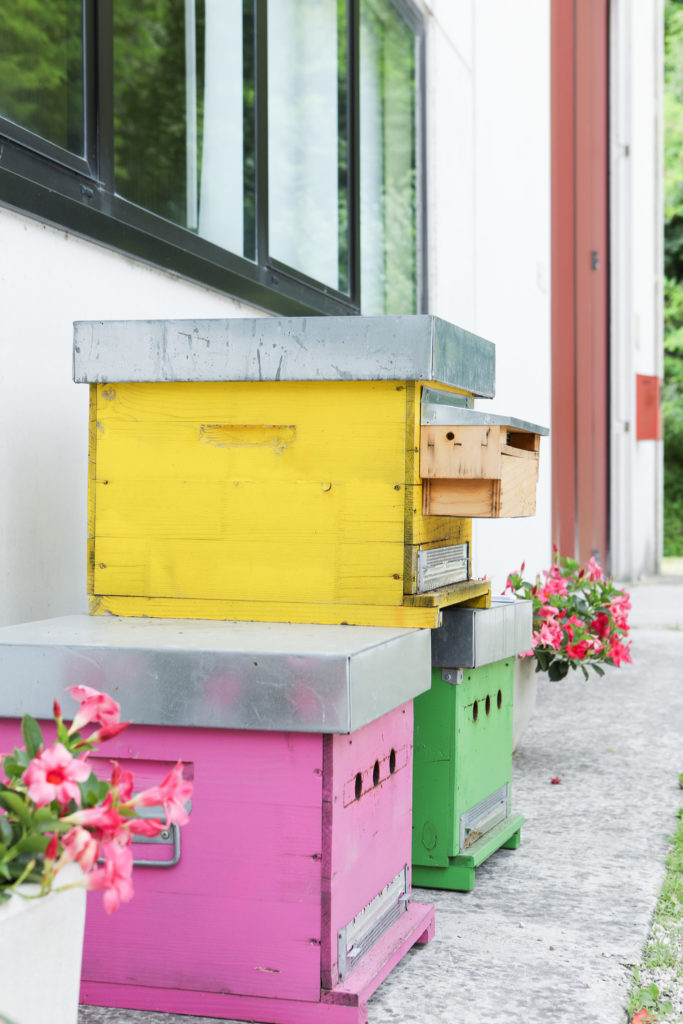
More about the Beekeeper
Serena is a woman who is clearly passionate about the work she does, which was visible upon meeting her, but there was one moment that it was undeniable. As she talks about her work, bees flock to her and one lands on her. She looks at it fondly and with a tender hand, picks it up and handles it. Her relationship with the insects was very evident at this moment, and to any outsider it is clear that it is about much more than a means of income.
Beekeeping, Alunni explains, involves much more than people realize. It demands intense physical labor, a deep understanding of science, meticulous planning, and strategic marketing. A vital aspect of her work is studying the land to ensure the bees thrive. Without careful observation and adaptation to the local environment, the bees would struggle to survive. Alunni highlighted the critical role that organic agriculture plays in maintaining the local environment. Without the efforts of beekeepers and other organic farmers, the local ecosystem would likely deteriorate. Her work not only sustains her business but also helps preserve the natural beauty and well-being of the region.
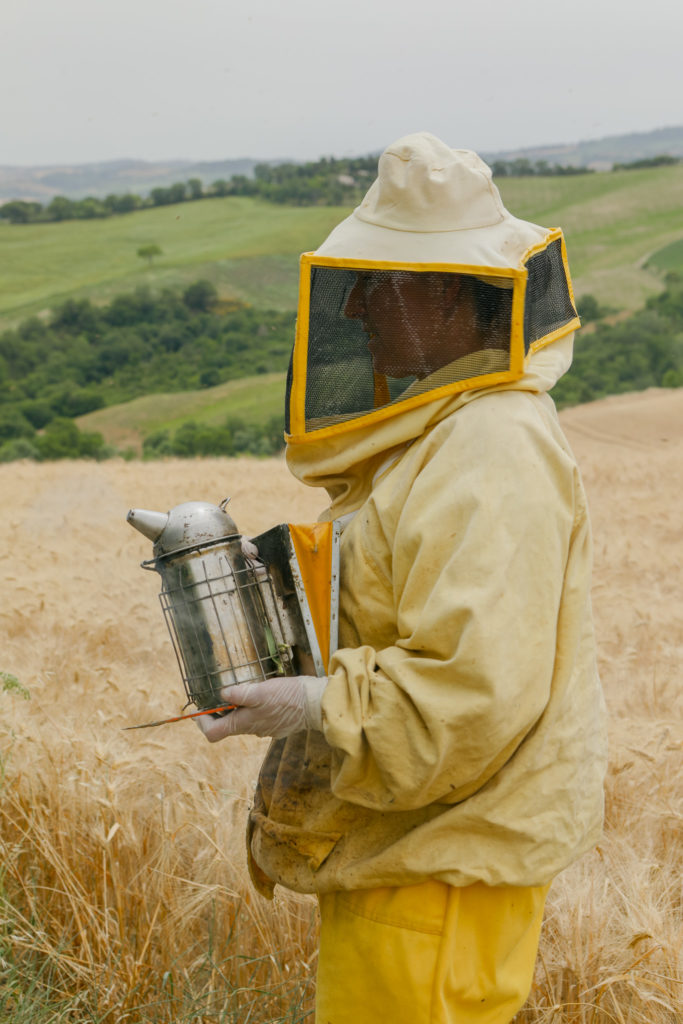
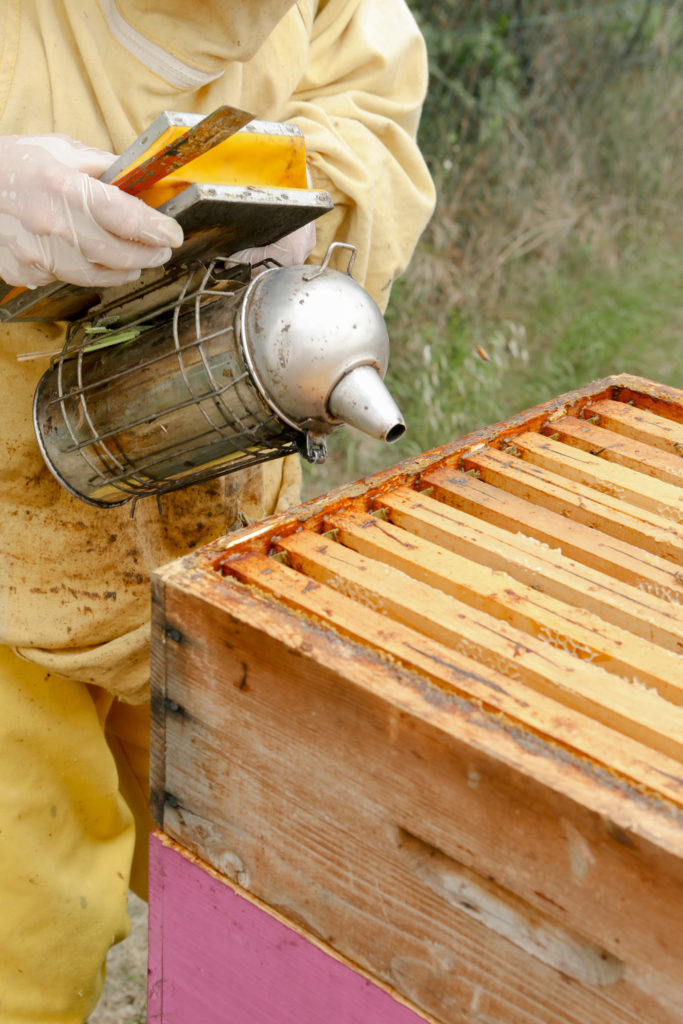
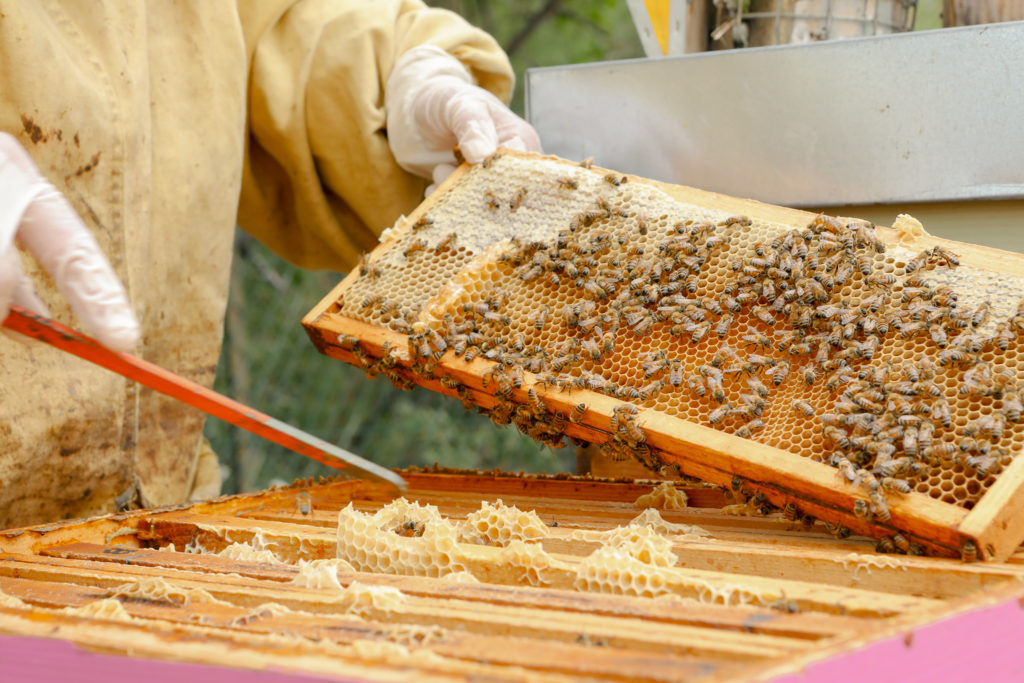
Climate change has posed significant challenges to Serena’s beekeeping business. The past five years have been particularly tough, with unpredictable weather patterns making it difficult to determine the best locations for the hives. The changing climate has altered the timeline for honey collection and reduced the bees’ honey production to 20 percent of what is usually harvested. Typically, her bees produce about 40 kg of honey per year, but last year they only managed to produce 8 kg. In 2024 the season ended in the middle of June, almost 8 weeks earlier than usual.
Another persistent issue Alunni faces is the lack of support for small businesses. Many consumers prefer the convenience of purchasing all their products in one place, often opting for honey from grocery stores. “A lot of people don’t realize when you go grocery shopping people try to be conscious of what they buy, but they still buy from big companies,” Alunni said. “There is a misconception around honey. The biggest industries that produce it don’t look into being conscious, but making more of it.”
In response to these challenges, Alunni has had to get creative to sustain her business. In 2020, she began collaborating with local organic businesses such as meat producers and soap makers, to diversify her offerings in the shop and keep her business afloat. She is also one of few beekeepers in the area who collects pollen. This approach has helped her combat the difficulties she has faced in recent years.
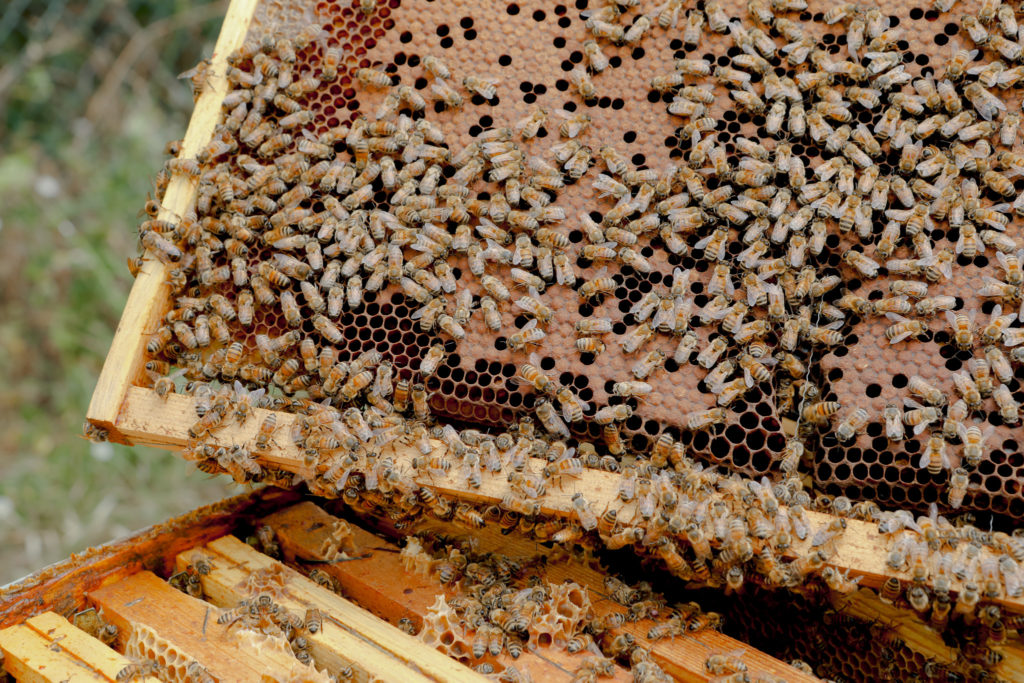
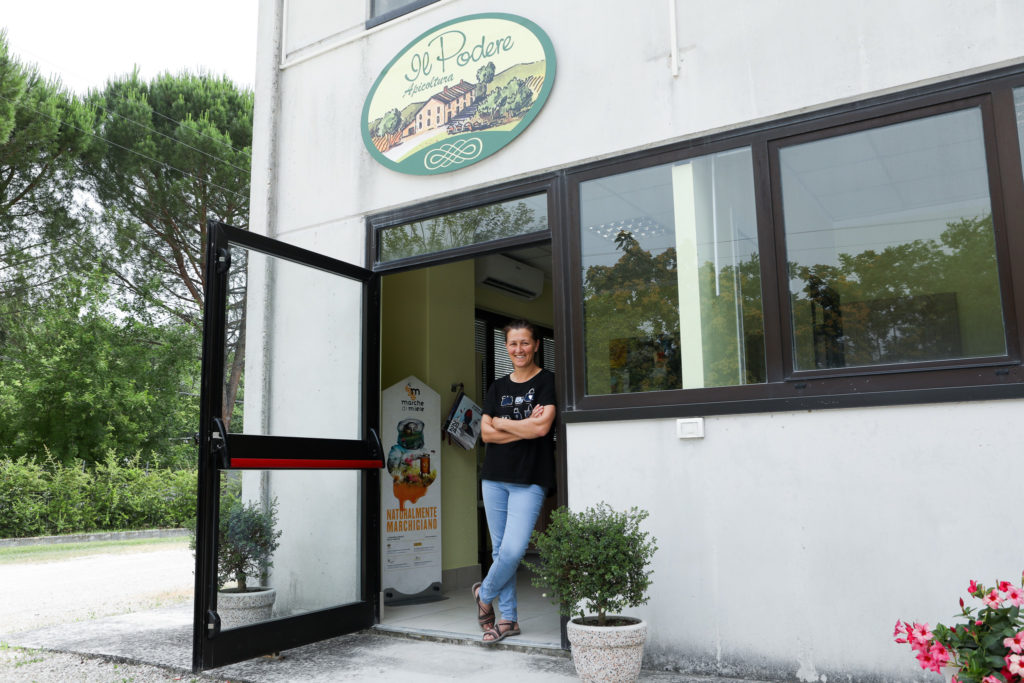
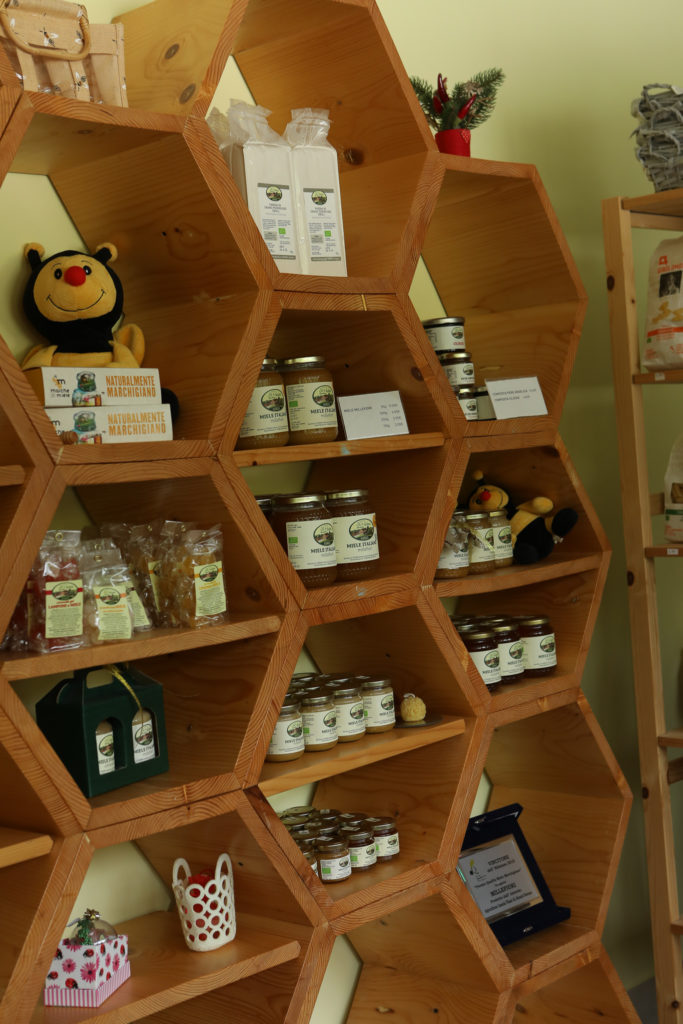
Despite the difficulties in her work, Alunni remains optimistic. It is unpredictable whether it will be a good year or a bad year for the business, but she is ready to face whatever nature has in store. Her resilience and dedication to beekeeping and maintaining the local environment in Isola del Piano is truly inspiring.